Have you ever noticed your dog panting more than usual and felt a twinge of worry? You sit there, watching them restlessly pacing or breathing heavily, and can’t help but wonder, Is something wrong? It’s that uneasy feeling of seeing your furry friend struggle, especially when it happens at night or without any obvious reason. It’s stressful and confusing, leaving you searching for answers.
In this post, we’ll break down why my dog is panting and what it might mean for their health. From common, harmless reasons to more serious conditions, you’ll learn how to spot signs that need attention and what steps you can take to keep your dog safe and comfortable. By the end, you’ll have clear insights and practical tips to help your pup breathe easier and feel better.
Dogs & Panting
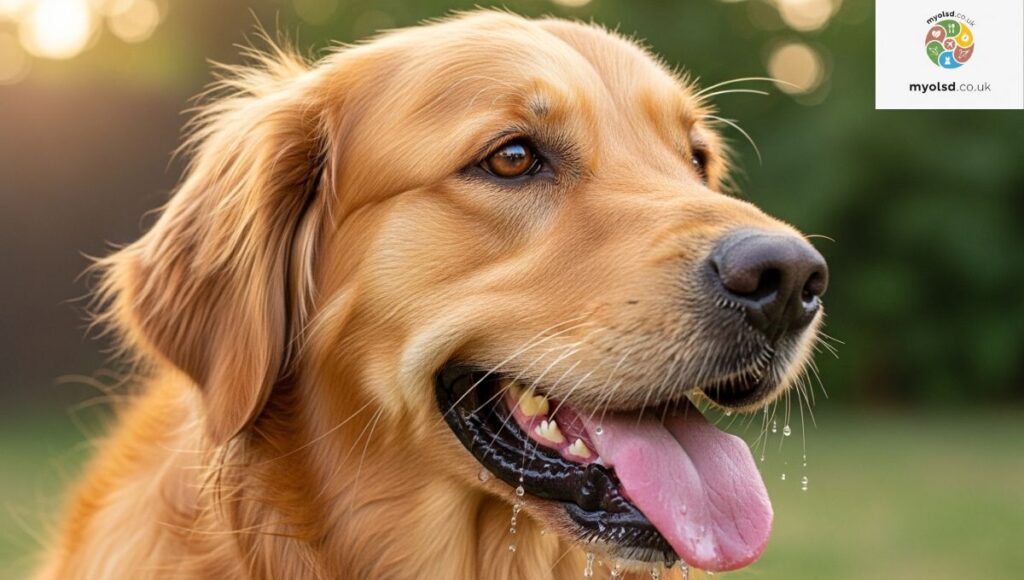
Panting is a dog’s main way to regulate their body temperature, much like humans sweat. Unlike us, dogs don’t have sweat glands all over their bodies, so they rely on panting to cool down. When dogs breathe rapidly with their mouths open, evaporation from the tongue, as well as convection cooling from the upper respiratory tract, helps reduce body heat.
Healthy dogs have a panting rate of 15 to 35 breaths per minute when at rest. However, if your dog’s panting exceeds 40 breaths per minute while calm, it’s considered excessive and may indicate a problem. Factors such as excitement, exercise, or high environmental temperatures naturally increase panting, but persistent panting is a red flag.
Which Property of Water Allows Dogs to Cool Themselves by Panting?
Dogs use evaporation from their tongue and mouth to lower their body temperature. Water in saliva absorbs heat and evaporates, taking excess heat away from the dog’s body. This process is critical for short-nosed breeds like pugs, Boston terriers, and boxers, who are more prone to overheating due to compressed airways and brachycephalic features. Convection cooling from airflow during panting also helps, but these dogs often struggle more than long-nosed breeds.
How Much Panting Is Abnormal?
Not all panting is a cause for concern. Exercise-induced panting or panting after play is completely normal. But abnormal panting, especially when your dog is at rest, can signal respiratory, heart, or metabolic issues.
Signs of abnormal panting include:
- Heavy breathing while lying down
- Labored breathing using the stomach muscles
- Open-mouthed breathing at rest
- Rapid panting exceeding 40 breaths per minute
If you notice pale, blue, or purple gums, brick-red tongue, or reluctance to move, your dog could be experiencing oxygen deprivation or severe dehydration.
Read more Article: Why Does Ozdikenosis Kill You?
Why Is My Dog Panting So Heavily?
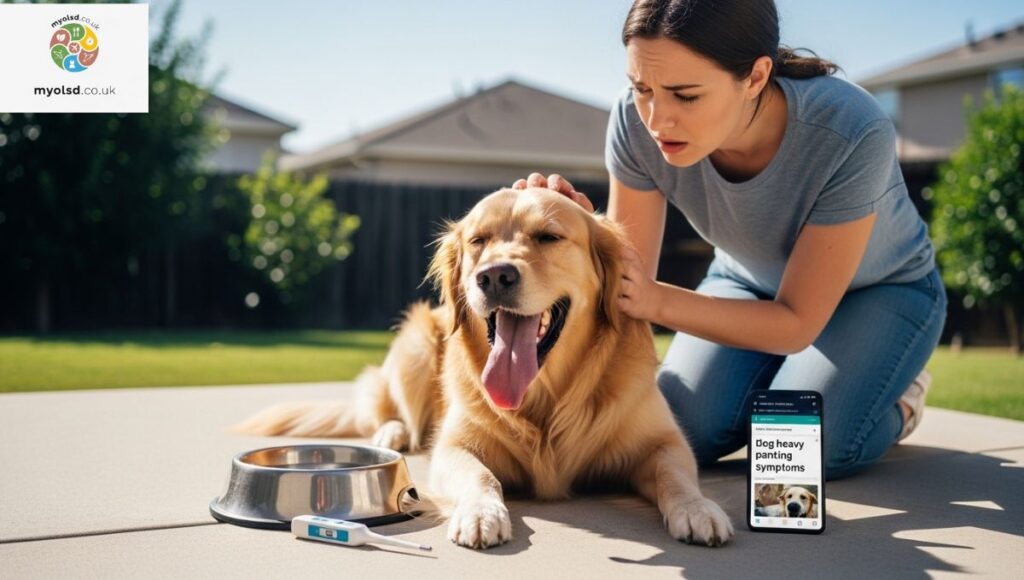
Excessive panting can stem from multiple causes. Sometimes it’s harmless, like excitement or mild environmental stress, but other times it can signal serious health issues.
Dangerous Causes of Panting
- Heatstroke in Dogs
Heatstroke occurs when your dog’s body temperature rises dangerously above 104°F. Symptoms include excessive panting, glassy eyes, drooling, vomiting, diarrhea, and weakness. Short-nosed breeds are especially vulnerable, and leaving any dog in a hot car can quickly become fatal. Immediate veterinary care is essential, and cooling your dog gradually with lukewarm water is recommended. - Cushing’s Disease in Dogs
This occurs when the adrenal glands produce excessive cortisol, leading to symptoms such as heavy panting, excessive thirst, frequent urination, hair loss, and a pot-bellied appearance. Senior dogs are more prone, and untreated Cushing’s can exacerbate heart and respiratory problems. - Heart Disease
Dogs with heart failure may show rapid panting, coughing, fatigue, and difficulty breathing after short walks. Heart disease affects oxygen delivery to tissues, making panting at rest more noticeable. A vet may recommend medications, diagnostic tests, or lifestyle changes. - Respiratory Disorders
Conditions like laryngeal paralysis, collapsing trachea, pneumonia, lung tumors, and fungal or bacterial infections can cause excessive panting. Dogs may struggle to breathe and show labored breathing, blue-tinged gums, or reluctance to eat and drink. - Pain or Trauma
Dogs often hide discomfort, but panting can be a subtle sign of injury, arthritis, or internal trauma. Watch for restlessness, licking or biting a body part, reduced activity, and open-mouthed breathing at rest. Severe injuries require immediate veterinary attention. - Toxic Ingestion & Poisoning
Ingesting toxic substances can lead to panting, vomiting, diarrhea, tremors, or seizures. Prompt vet care is crucial, along with detailed information about what your dog consumed.
Non-Dangerous Causes of Panting
- Temperature Regulation
Even in mild conditions, some dogs pant more at night if their sleeping area is warm. Ensuring proper ventilation and a cool resting place often resolves mild panting. - Stress and Anxiety
Loud noises, fireworks, thunderstorms, or separation anxiety can trigger stress-induced panting, especially at night. Observing your dog’s behavior and creating a calm environment can reduce anxiety-related panting. - Excitement or Physical Activity
Dogs naturally pant after activity. If they pant excessively after a long walk or play session but otherwise behave normally, it’s usually not a concern. - Canine Cognitive Disorder
Older dogs may develop dementia, leading to disturbed sleep-wake cycles, nighttime panting, pacing, and restlessness.
When Should I Be Concerned About My Dog’s Panting?
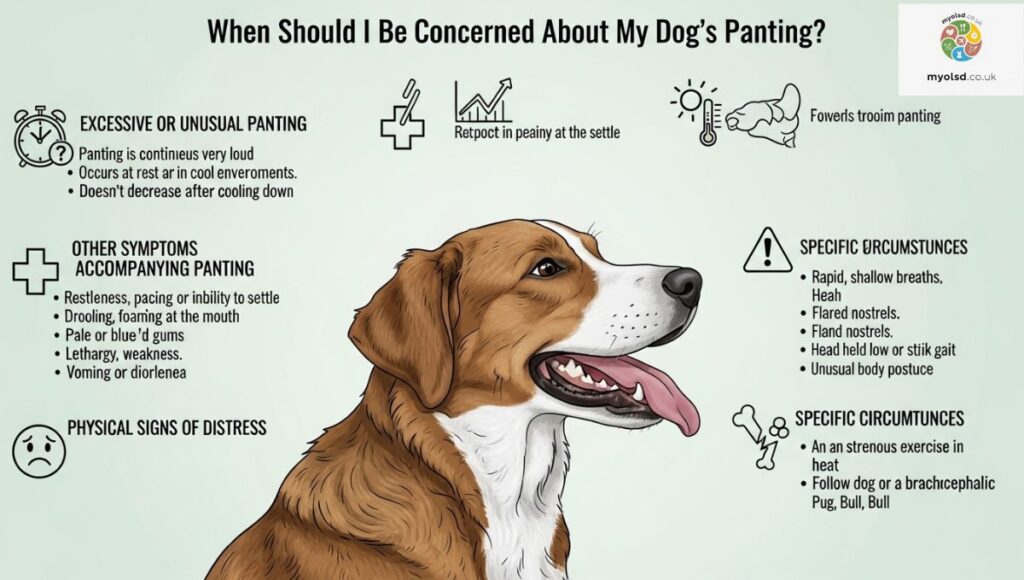
While occasional panting is normal, persistent or sudden changes in breathing should prompt a vet consultation. Seek urgent care if you notice:
- Blue, grey, or purple tongue
- Brick-red gums or excessive drooling
- Labored breathing using the stomach muscles
- Panting at rest without heat or exercise
- Vomiting, diarrhea, or weakness
Veterinarians may perform diagnostic tests, X-rays of lungs and heart, oxygen therapy, intravenous fluids, or hospitalization, depending on the severity.
How Can I Tell Why My Dog Is Panting?
Determining the cause often requires a combination of observation and veterinary evaluation:
- Monitor patterns: Note if panting occurs at night, after activity, or during stress
- Check for other symptoms: Appetite changes, mobility issues, coughing, or unusual drooling
- Consider breed traits: Short-nosed breeds often pant more
- Seek professional advice: A vet can perform tests to rule out heart disease, respiratory problems, or endocrine disorders like Cushing’s
How Can I Help My Dog If They Are Panting Excessively?
Depending on the cause, you can try:
- Cooling measures: Fans, cold towels, lukewarm water for heat stress
- Calming techniques: Quiet room, soothing music, pheromone diffusers
- Medical care: Pain relief, oxygen therapy, IV fluids, treatment for infections or heart issues
- Behavioral support: Certified dog trainers or behaviorists for anxiety-related panting
Always follow your veterinarian’s guidance. Some dogs may require hospitalization, surgery, or long-term medications to manage underlying health conditions.
Dog Panting at Night: Special Considerations
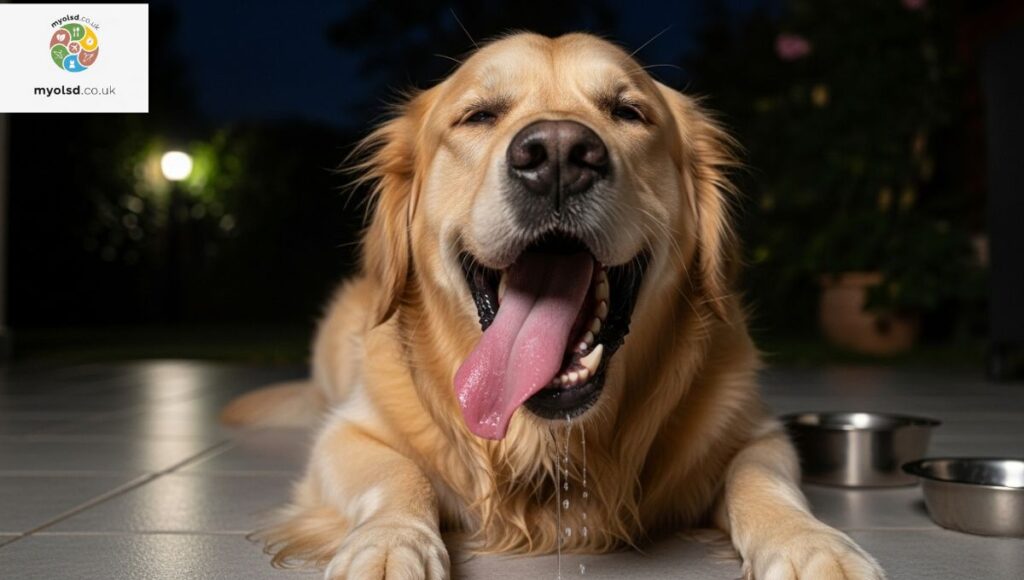
Nighttime panting often indicates environmental stress, anxiety, or underlying health problems. Puppies and senior dogs are more sensitive to high nighttime temperatures, and dogs with arthritis or dementia may pace and pant during sleep cycles. Observation is key. Keeping a log of dog panting at night, restlessness, or sleep disruption can help your vet pinpoint the cause.
Final Thoughts
Persistent or sudden changes in your dog’s panting are never something to ignore. Understanding why your dog is panting helps distinguish harmless activity-induced panting from serious medical issues like heatstroke, heart disease, or respiratory distress. By monitoring your dog, noting other symptoms, and seeking timely veterinary care, you can ensure your furry companion stays healthy and comfortable.
If your dog shows abnormal panting, labored breathing, or signs of stress, contact a local veterinary hospital immediately. Experienced vets in Seattle, New York, or Mahopac are ready to provide urgent care, diagnostic tests, and treatment to help your dog recover safely.
FAQs
Should I be worried about my dog panting at night?
Occasional panting is normal, but persistent or excessive panting at night may indicate stress, pain, or a medical issue. Observe other symptoms and consult a vet if concerned.
What can I give my dog for panting at night?
Never give medication without vet guidance. Ensure your dog has water, a cool resting place, and a calm environment. For anxiety, a vet may recommend safe treatments or behavioral solutions.
Does panting mean my dog is in pain?
Panting can be a sign of pain, especially if paired with restlessness, reluctance to move, or unusual behavior. Always check for injuries or health problems.
What are the symptoms of heart disease in dogs?
Signs include heavy panting at rest, coughing, fatigue, fainting, or difficulty breathing. Senior dogs are at higher risk and require a vet evaluation.
How long is too long for a dog to pant?
Panting that continues for more than a few minutes at rest, or is sudden and intense, may indicate a medical issue. Persistent panting warrants veterinary attention.
Why is my dog suddenly panting and restless?
Sudden panting and restlessness can result from pain, anxiety, heart or respiratory issues, or heat stress. Immediate vet consultation is recommended if it seems severe.
How to tell if a dog is nearing the end of life?
Signs include lethargy, labored breathing, refusal to eat or drink, and excessive panting. Regular vet check-ups help provide comfort and guidance during this stage.
Can heart problems cause panting in dogs?
Yes, heart disease can reduce oxygen circulation, causing heavy panting, fatigue, and coughing, especially at rest or after minimal activity.
Is panting stressful for dogs?
Panting itself isn’t harmful, but stress-induced panting reflects anxiety. Calm surroundings and reassurance can help your dog relax.
How to tell if a dog has a fever?
Signs include lethargy, warm ears or nose, shivering, and panting. A vet can confirm with a rectal thermometer.
Should you give dogs water when panting?
Yes, offer small amounts of cool (not ice-cold) water frequently. Avoid forcing large amounts, especially during heatstroke or illness.
Should I be worried about nighttime panting?
Occasional nighttime panting may be normal, but frequent or severe panting can signal medical or behavioral issues. Monitor your dog and consult a vet if needed.

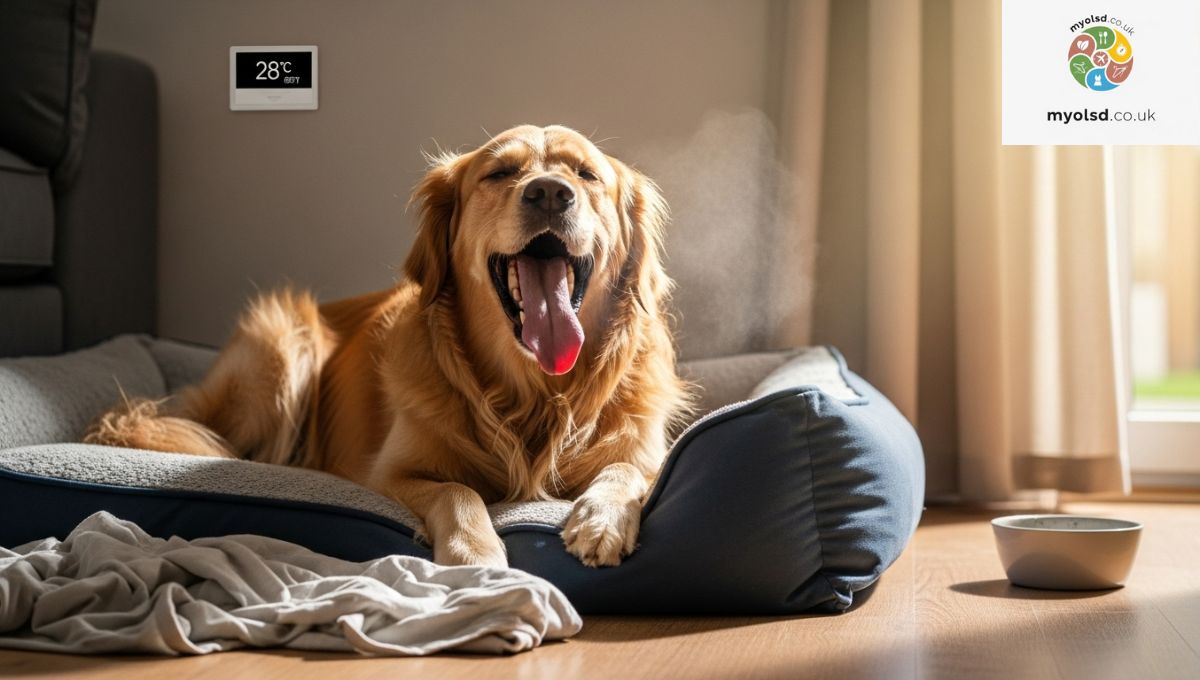
1 thought on “Why Is My Dog Panting? Causes, Signs & Solutions”